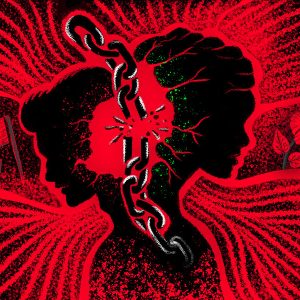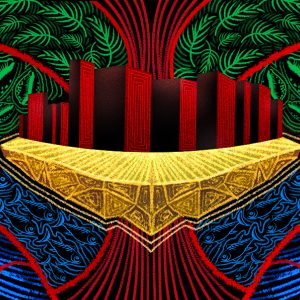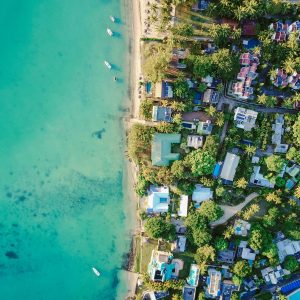Albert Camus, The Rebel, tr. Anthony Bower
In these fallow, frozen times, are the world, the earth, and our own thoughts on the verge of a much-needed renewal or a plunge into nothingness? Between fear and hope, which forking paths, which byways will lead us out of this crisis? Is this a stopping point we’ve come to, or rather a breaking point, a point where possibilities disappear, unless we manage to hack our way through the thickets and brambles we have ourselves grown?
And yet the spaces all around me—greenery graced by a lack of noise and pollution, birds flocking back, bees drunk on cherry and lavender blossoms—and my own response to lockdown and loneliness, which had been a welcome immersion in contemplation, reflection, and writing both seem to be telling me that yes, rebirth is possible; yes, the earth can heal its wounds, just look at how fast species have rebounded; yes, solidarity is a word that carries meaning, and men haven’t answered this threat with chaos and anarchy, as in postapocalyptic films, but with outstretched hands and humane acts. In this inwardly strange and outwardly sublime spring, I want to heed Voltaire’s exhortation to literally, and metaphorically, cultivate my garden.
But it doesn’t take much consideration to realise that the last paragraph could just have easily been written by Pangloss, the misguided philosopher and teacher in Voltaire’s biting satire. As if, going by his logic, the pandemic was for a reason and was necessary and therefore ‘all is for the best in the best of all possible worlds’!
All it takes is a proper look around to realise how terribly narrow such a line of thinking is. It doesn’t apply to those who endure danger each day, those whose days are clouded by the sheer necessity of surviving, those who see this crisis not as a rebirth but as yet another misfortune. What I have, by comparison, is privilege: of having a choice, of being able to make the best of this situation, of not needing to suffer the consequences of the pandemic. Does this privilege allow me to act the schoolteacher, a Panglossian sort philosophizing from my self-proclaimed pulpit? What can I tell people that might hold value in light of the present tragedy, and the one about to begin?
To speak of the world’s beauty just as the world is collapsing is perhaps the worst of all sins.
Am I going to add to the myriad virtual voices filling every minute with ‘news’ that often boil down to inanities and, in some cases, are a torrent of half-truths and rants born of the fear that silence might force them to face up to the great unknown?
Confronted by these contradictory echoes, these dissonant voices, these tumults of our time, all I can do is try to take the measure of what is actually happening, and what awaits. I could try to offer a measured view, so exceedingly rare in these discordant times where each day brings new, conflicting, bulletins. These are times in which truth becomes infinitely malleable. How, really, can it be defined when all we get are opinions dressed up as information? Given all the distortions it’s been put through, the very idea of truth has become inherently suspect.
Each of us has to forge a path through this morass of contradictions, this mise-en-scène of daily life—a mise-en-scène, a theatricality that have become fundamental, because disasters that don’t affect us are a source of excitement and a kind of justification for our existence (each disaster arising elsewhere is one that’s spared us), we relish them with our morning coffee, we wolf them down with dinner, and we lull ourselves to sleep with the thought of having escaped fate’s clutches.
But the present catastrophe won’t spare any of us. It’s global. It’s not limited to poor countries, to refugees, to dictatorships, to the downcast of the world; rather, its icy fingers touch even those who believe themselves most sheltered and safe, protected by their barricades of certainty. So how can it be understood, ascertained, tamed? For most people, it seems to be through the same means: the theatre of daily life.
But this perpetual stage we strut and fret across all our lives allows us to make sense of catastrophes as if we were perpetual audience members, even when they cut to our core. It’s as if we needed a Greek chorus of media outlets and social networks to accompany this tragedy and comment on it and drape it with a deceptive disguise, so as to stomach it more easily. Some are led to believe, for instance, that it’s a conspiracy of the great powers United States or Chinese—with the goal of bringing populations to their knees and cementing their supremacy, or that it’s all smoke and mirrors meant to dupe us all with state-sanctioned lies, or even that the virus’s source is 5G or that injecting disinfectant could be a silver bullet; or we might simply insist to ourselves that nothing will happen to us, since we’re immunised, whereas others will get sick; not us, because we’re the heroes of our personal narratives and therefore cannot die. In the midst of all these wild theories, the same level of credibility is ascribed to the advice that scientists and doctors provide as they try to reestablish order and some semblance of rationality—but they are all too quickly drowned out by other voices, and they themselves are induced at times into the same theatricality, the same excesses, just to get people’s attention.
So, if we’re neither hero (for heroism is a loaded word that doesn’t properly convey ordinary courage) nor victim (for we are partly responsible for these current catastrophes), then what are we? How can we make sense of this pandemic that is only unique in that it is global, but may also be a harbinger of things to come?
It may well teach us just how vulnerable we all are, all of us including those of us who believe ourselves safe. And that this vulnerability hasn’t reduced inequalities in the least. We are not all equal in the eyes of the virus, on the contrary. Where I live, in the area around Geneva, those infected can be cared for in a Swiss hospital and benefit from its modern conveniences and enjoy some measure of comfort. Lockdown hardly feels burdensome when one can stroll around a beautiful landscape between the Alps and the Jura mountains that is awe-inspiring in any season.
And at the same time, in Mumbai and many major cities of India, millions of people living in slums have been forced to trundle down the roads away from their cities because lockdown has deprived them of their livelihood, or more precisely their pittance. The only option they have is to return to their home village, hundreds or even thousands of kilometers away, to try to survive. Those villages’ inhabitants, at least, won’t abandon them like trash on the roadside. If they stayed in the cities with all their work having dried up, not only would they not be able to feed themselves, but they wouldn’t be able to get any care if they got sick. India’s wealthiest citizens chartered planes to bring family members abroad back home. The exodus of the poor, however, took place without even a bus provided by the state or by deep-pocketed citizens, without a single bottle of water or the least bit of food. Many have died en route. When the State finally suggested providing some help, some of the more privileged complained about this useless outlay. After all, trash doesn’t need to be fed or cared for. It’s just there to be thrown away, and then it’s gone.
As the Indian journalist Avay Shukla put it on his blog:
Cocooned safely in our gated societies and sectors, we have locked out our maids, drivers, newspaper men, delivery boys and a dozen others who have built for us the comfortable lives we now desperately try to cordon off from the less fortunate. We have deprived them of their livelihoods. We encourage another extension of the lockdown because our salaries and pensions are not affected. Our primary concerns revolve around resumption of deliveries from Amazon and Swiggy: the lot of the migrating millions is dismissed as just their fate- the final subterfuge of a society that no longer cares.
And this inequality doesn’t only concern rich countries and poor countries. In an Italian town, the health services became so overwhelmed they could not attend to all those who had died at home. Some families spent several days beside bodies that were already starting to decay, with all the attendant pains and horrors.
In France, the elderly quietly died of COVID-19 in nursing homes before anyone realised it, almost as if they had been forgotten, or as if they counted for less than the rest of the population.
A friend of mine living alone in a small Paris apartment saw her street overrun by homeless people who had nowhere else to go.. It pained my friend to see them abandoned like that, even as it scared her to leave her home. It’s all too easy to imagine how those days of anguish, confinement, and powerlessness weighed on her.
The nature of lockdown is such as to magnify psychological issues, as well as increase the risk of domestic violence. For many, this is compounded by the anxiety of losing their job or their business.
But which voices do we hear in this shadow play? Not theirs, that’s for sure. Their voices don’t interest the cloistered audience all too happy to clap while in safety but not to engage in deeper reflection. After all, if there are any lessons to be learned from this crisis, are they incisive enough to bring about genuine, deep-rooted, long-lasting changes in perspective?
This revival of nature, this decline of excessive consumerism, this shift back to healthier eating choices (for those who can do so), this clearer understanding of the threats we face, and this reappraisal of time itself all amount to lessons that should allow us to reconsider our relationship to the world. To realise just how precious it is, and how it’s time—if it’s not too late—to stop our race to the bottom. Time to look at ourselves properly, to see others and listen to them, to hear them out and not just on the phone, to understand what’s led us to this moment that’s practically calling out for us to cast off the yoke of suffocating, back-breaking materialism.
But in this theatre that amounts to psychodrama, we mustn’t forget who’s pulling the strings: these puppeteers who’ve long been in the shadows but are now showing their true colours. The masks have come off: Wall Street doesn’t have to hide behind smokescreens anymore to sound agreeable, to pretend that it’s acting in everyone’s best interest. It wasn’t so long ago that war profiteers would make tidy sums through the puppets of democratic governments that officially forbid selling arms to dictatorships even while using them as intermediaries to do the dirty work. They didn’t just support global conflict zones in order to increase demand for their goods; they went so far as to stoke conflicts, even where none existed. And these days there’s no reason to bother hiding or engage in such subterfuges: when various media are skillfully deployed, it’s easy to create opportune moments for fear and worry that warrant the use of force and arms for the sake of democracy. And here, too, relative truth is made a tool to shape all-too-pliable minds.
Mining companies and multinationals have taken over from the former colonial powers to bleed developing countries dry and make cash cows out of them; they provide both the basic goods for industrial society and the trash bins where the dregs of industrialisation end up after having had all potential use wrung out of them.
The industrialisation of agriculture has not only flattened all flavour and freshness in food, but also transformed it into a time bomb through the accumulation of pesticides, artificial fertilizers, antibiotics, unnatural foodstuffs for livestock (meat, bones, and animal organs ground up for herbivorous livestock, for example), and all the offences of intensive farming and agriculture. On a larger scale, countries like Mali and others have been coerced by the World Bank and the IMF to replace subsistence crops with the intensive farming of cotton, coffee, cacao, or other products traded in the global marketplace, even though this change weakened the country economically, making it dependent on the ebb and flow of these same markets and forcing it to import food. Globalisation has overpowered so many developing countries’ agricultural autonomy and set the planet on track to impoverish its land, deforest its natural resources, and pollute its water and air.
All this seems to have created a perfect storm, the aftershocks of which will last a long time. Zoonotic infections are not new, but they’re far more widespread now. Globalisation has only helped these viruses to spread more easily and made populations even more vulnerable.
How can we brave this tempest bearing down on us?
Maybe by remembering that solidarity is not some long-lost quality. Mutual aid has hardly been an empty phrase during these weeks of lockdown, and neighbours who don’t necessarily talk have been reminded that proximity matters in times of distress and need. Constraints around distance have made it clear how deeply necessary actual contact is, not through screens, but through hands, lips, bodies. After all, pixels cannot replace eye contact or skin contact.
But has this burst of solidarity been felt at the highest levels? Governments of many countries are trying to set up support systems for the most vulnerable. But the bulk of any financial injection here has gone, as it always has, to big businesses, multinationals, banks, and other ‘major’ global economic drivers. It’s the same mindset as believing that by increasing taxes for the middle class and the poor, and writing off taxes for companies with huge sums of money, a country’s economy can be grown through investment. But, as we’ve seen, when the rich get richer, they only try to get even more money. Their greed knows no limits. During the current crisis, Amazon has made staggering profits while small businesses have had to shutter their doors and millions of people have found themselves out of a job. Have Amazon and the other big companies given a percentage of their billions to the most vulnerable? The majority have not. The worker bees have to keep toiling away in the shadows for the queen bee of Amazon, while Google and Facebook hoover up personal data like mythical monsters greedy for the most telling details that would enable them to tighten their grip on each person who can make them money. If the cash register’s metallic chimes are still ringing out, what reason do they have to stop? After all, users agree to hand over their data every time they open a webpage.
Could everything I’ve just written be seen as yet another conspiracy theory, given how dubious everything already is? A healthy amount of doubt is always wisest when taking into consideration all the information we’re deluged with. Nobody can be sole arbiter of the truth—that’s perfectly evident. But this scrutiny should also be applied to everything we’re presented with as factual, objective information, to all the theories multiplying across the Web. If only we’d made a habit of asking questions before being convinced, of thinking carefully before believing, of using our rational, adult judgment before swallowing every tall tale fed to us, then this phenomenon of fake news wouldn’t have taken on such proportions.
It doesn’t matter whether people accept what I write here or not; what matters is that they ask themselves the right questions.
I’m sixty-three years old and I’ve seen the world change at warp speed. I began writing by hand with a fountain pen and today I’m hunched over my laptop as if it contained some essential part of myself. I’m grateful for technological progress and the modern comforts we didn’t have in the small village where I was born. And yet today’s world fills me with terror. Technology has long since transcended mere usefulness to enter the era of frivolous contrivances as addictive as drugs. Phones always have to be close to hand now; their temptations suck up all our attention, our ability to take in anything grows worse and worse even as we convince ourselves that all the information we could need is at our fingertips.
But this is not so. We labour under the delusion of permanent connection even as we isolate ourselves within our own bubbles.
From my perspective, the miracles of the industrial era are turning little by little to ashes. Our comfort and our distractions come at the cost of the planet and its disadvantaged populations. Our eyes glued to screens cannot see all the uprooted, exiled, dispersed, and cast-out peoples surrounding us.
Blind, deaf, mute, hypnotised.
When will humanity truly wake up?
Once the mirror is broken, only in true reflection can we finally find the answers.
Subscribe for new writing
Sign up to receive new pieces of writing as soon as they are published as well as information on competitions, creative grants and more.



